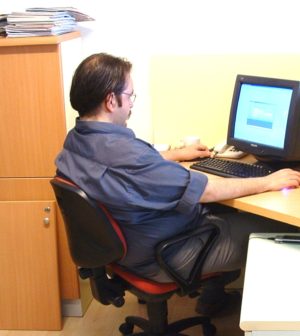- Belgium comes to Yamashita Park
- Residential Villa in Phuket Entices Remote Workers With Long-Stay Rates
- Rare pieces of French glass art at the Mirai Museum of Art
- Feast on fresh fish and seafood at the 2024 ‘Sakana’ Festival
- Would you like to ride in a Louis Vuitton gondola lift?
- Naked Snow Aquarium
- Festive lights at Yomiuriland will get you feeling the holiday vibes
The meaning of work: OCCUPATION

How the words you use when thinking and talking about work influence your performance and fulfillment.
Occupation:
Defined as an activity that a person spends time doing, people who see work as an occupation tend to neither love nor hate their work. While work may not be a “necessary evil”, this meme offers work up as simply a way to fill the time.
What’s the danger in this? You can be occupied with something that stresses you out, bores you, excites you, energizes you, scares you, exhausts you, challenges you, or brings you great joy. Being content to define work as “something that occupies your time” says nothing about the quality of the experience you want to create at work.
Having low (or absent) expectations for what work can bring to your life often covers up limiting beliefs about why you can’t have more from your work. Over the last three decades of working with people who have struggled to discover meaningful work, I have noticed that people stop themselves from considering what they really want because they believe it is silly, too expensive, too time consuming, outside of their ability, or any other of a thousand reasons that it is not realistic. The challenge with this mindset is this: if you don’t admit to what you really want, you can’t begin to figure out how to get there.
Think of it this way. If you dream of going on a year-long vacation around the world but believe it isn’t realistic, you won’t invest any time trying to figure out how to do it. Instead you will settle for vacation options that feel doable, like going to Mexico for a week or two. Unfortunately, those Mexico vacations will never be as fulfilling as your year-long dream vacation would be. Even though you consciously dismissed the idea, your subconscious will keep nagging you to fulfill this unrealized dream.
If you admit what you want, you give your mind permission to start figuring out how to make it happen. You could vacation close to home for several years to save for your dream trip. You could start an online business to create an income you could maintain from anywhere in the world to top up the money you will need as you travel. You could even do volunteer work abroad in exchange for free accommodations to make it more affordable. The bottom line is this: there are many ways to achieve your vacation goal, but you can’t begin to figure them out until you have allowed yourself to envision what you really want.
It is the same with your work. You might have convinced yourself that having something to occupy your time and pay the bills is enough, but deep inside there is a part of you that knows it isn’t. There is a fine line between being content with your work and becoming complacent. People trick themselves into complacency. They tell themselves they can’t change things, so they are better off to accept them. A version of this I often heard living in Japan was “that is the Japanese way”. Sometimes this was said with pride, but often it was said with a sense of resignation that implied they couldn’t change the way things were even if they wanted to.
Over time, this decision to settle eats away at the energy, vitality, and sense of aliveness in all areas of your life. If work is just something that pays your bills, not something that fully engages you, your unused energy looks for something else to occupy itself with.
Unfortunately, it is more likely to occupy itself with blame, frustration, anger, and resentment than joy, fun, love, and kindness.
To break free of the limitations of work as an occupation, ask yourself the following questions:
• Get curious about whether you are afraid to allow yourself to want more. What do you really want when it comes to your work? What do you dream of doing? Where do you dream of working? What kind of people do you long to work for?
• Why do you think you can’t have any or all of the things that you identified above?
• Challenge yourself to think of at least 10 different ways you can get around each of the barriers you identified above. (Hint: if you can’t think of any, ask other people. Others don’t have the same limiting beliefs you do, so they are better at coming up with strategies you can’t see.)
• Pay attention to how you are really occupying yourself at work. If it doesn’t require your full energy and attention, what are you using that energy and attention for? How can you direct it into more positive purposes?
Ultimately, human beings have a natural need to constantly grow, learn and evolve in order to feel fully alive. Dissatisfaction and dreaming of a better future for ourselves is what drives evolution. Viewing work as nothing more than something to fill the time and pay the bills thwarts not only your motivation to evolve into your full potential, but the multitude of benefits that pursuing your real dream could bring for others.











